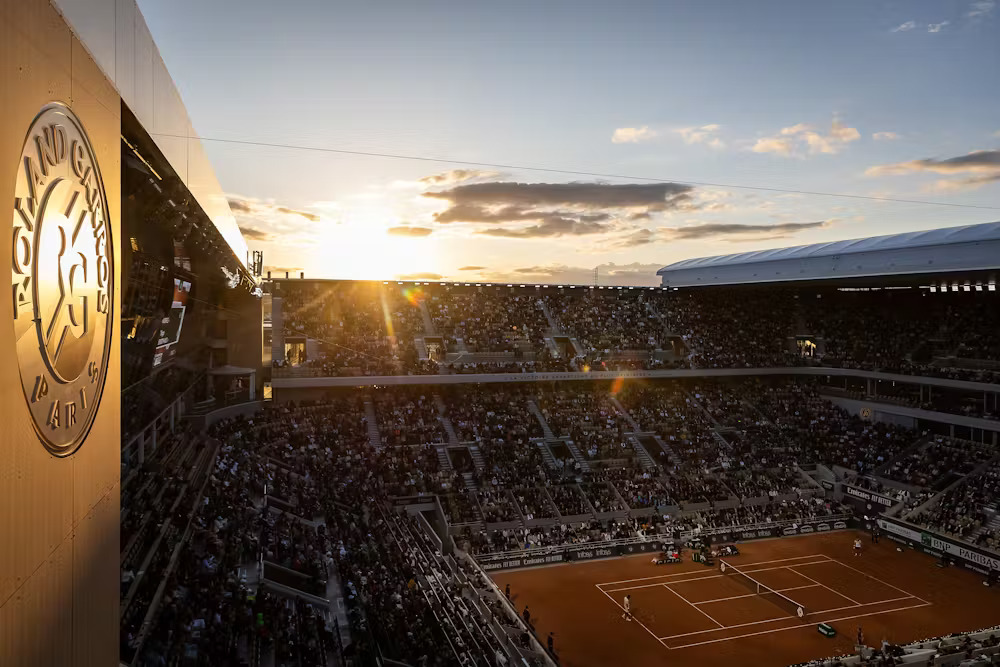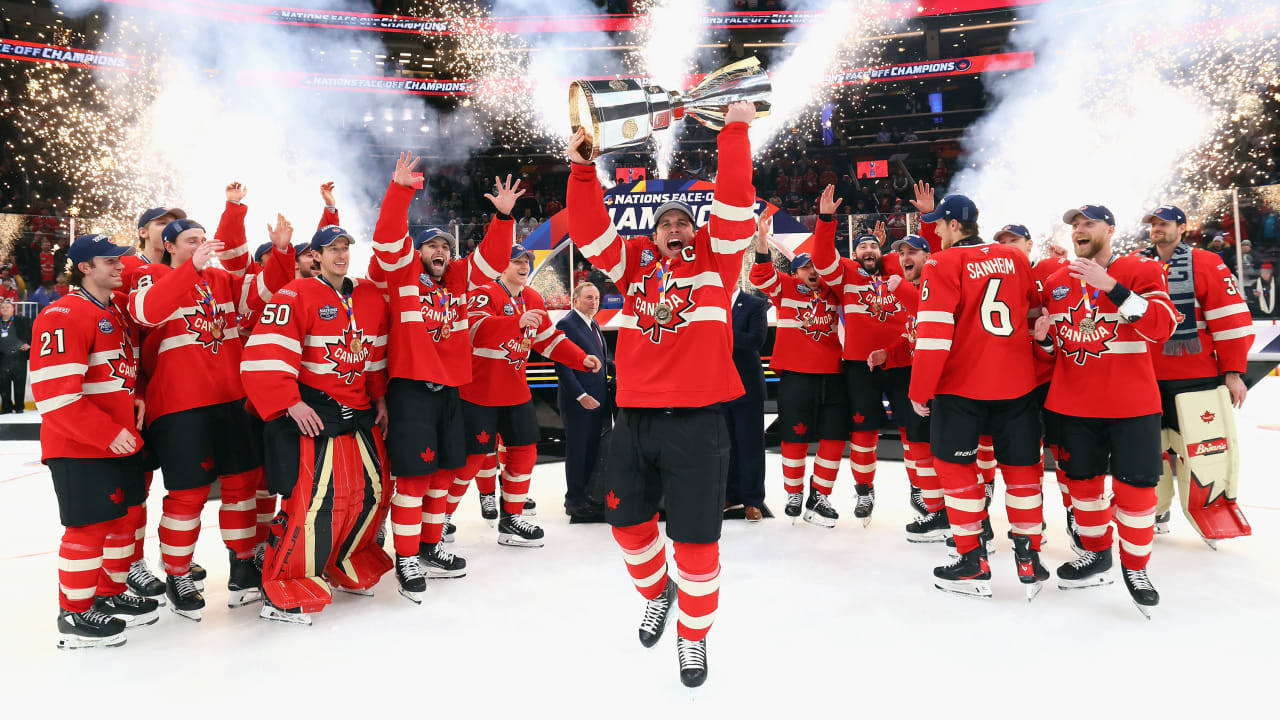- Sports 150
- Posts
- NCAA Diversifies, Roland Garros Cashes In, and PE Joins the Huddle
NCAA Diversifies, Roland Garros Cashes In, and PE Joins the Huddle
It’s Thursday and we explore a sports business landscape in transformation—the NCAA is expanding its revenue streams beyond March Madness as women’s basketball and new media deals take center stage.
Good morning, ! It’s Thursday and we explore a sports business landscape in transformation—the NCAA is expanding its revenue streams beyond March Madness as women’s basketball and new media deals take center stage. E-commerce is reshaping retail for sporting goods, Asia-Pacific leads global eSports earnings, private equity is making strategic moves into professional sports, and landmark media rights deals are setting new benchmarks across the industry.
First time reading? Join thousands of investors and executives keeping pace with the business of sports by Subscribing Here.
Know someone who would love this? Forward it their way! Here’s the link.
— The Sports150 Team
MEDIA & SPORTS
Game, Set, Deal

Roland Garros just served up a 441% spike in U.S. media rights, jumping from $12M to $65M per year under its new 10-year deal with Warner Bros. Discovery. Starting in 2025, coverage will run across TNT, TBS, truTV, and Max, marking a strategic bet that U.S. audiences want clay-court drama with a side of streaming flexibility. The $650M total is less about love for the red dirt and more about positioning: TNT Sports wants to be the next ace in tennis broadcasting, just as cord-cutting viewers demand more accessible, premium live sports. (More)
PRESENTED BY HUEL
You’re doing breakfast wrong
Let’s face it—most breakfast options just don’t cut it.
Toast? Too light. Cereal? Mostly sugar. Skipping it altogether? Not ideal.
If you want real fuel to power your day, it’s time to upgrade to Huel Black Edition. This ready-in-seconds shake is packed with 40g of plant-based protein, 27 essential vitamins & minerals, and 0 artificial sweeteners—just science-backed nutrition to support your muscles, digestion, and more.
Oh, and did we mention? It’s delicious.
Right now, first-time customers get 15% off, plus a free t-shirt and shaker with code HUELSPRING, for orders over $75.
INVESTOR CORNER
Private Equity Enters the Huddle
Professional sports are no longer just vanity buys—they’re a scalable asset class. With the NFL finally opening its gates to private equity, firms like Ares and Arctos are calling plays. New rules allow PE funds to acquire up to 10% in six different teams, so long as they're hands-off (no voting rights) and stay in the game for six years. For LPs, this means access to an asset that’s uncorrelated, fan-anchored, and media-rights rich. And with teams valued in the billions (see: Dolphins at $8.1B), expect more funds to sprint into this end zone. Call it the LBO era of the locker room. (More)
ENTREPRENEURS
Drew Brees: Quarterbacking the Franchise Game
Drew Brees isn’t just a Super Bowl MVP, he’s becoming a case study in athlete-led franchise investing. Since hanging up his cleats, Brees has built a portfolio rooted in two core ideas: authentic alignment and operational resilience.
He started with Jimmy John’s, not as a passive investor but a hands-on franchisee. The goal? Learn the model. Since then, Brees has expanded into health-forward chains like Everbowl, where his values around wellness and performance translate directly into the brand promise. The common thread across all his investments: every product resonates with his identity and public persona.
Brees also credits much of his growth to the franchisee community, leaning into shared wisdom, pattern recognition, and the kind of informal benchmarking you don’t get from pitch decks. Failures? Plenty. But Brees reframes them as training reps, preparation for the next opportunity.
Why it matters: Athlete investors are reshaping the mid-market franchise economy. Brees shows that the post-career playbook isn’t just about branding—it’s about building durable, cash-generative businesses by sticking to your values and scaling with systems. (More)
COLLEGE ATHLETICS
NCAA’s Not-So-Mad Money

It’s still March Madness that fuels the NCAA’s budget — $873M from CBS/Turner in FY24, rising to $995M in FY25 — but the org is quietly building a revenue bench. A decade ago, non-March Madness revenue was $192M. Today? $504M. That includes $263M from ticket sales across all championships and $17M in royalty deals. The rising star? Women’s hoops. Last year’s women’s final crushed the men’s in viewership and set an attendance record. ESPN noticed — signing an 8-year, $920M deal for all non-men’s basketball championships. Meanwhile, NCAA investment returns more than doubled over the last five years. TLDR: March still pays the bills, but diversification is real. (More)
TOGETHER WITH PACASO
He’s already IPO’d once – this time’s different
Spencer Rascoff grew Zillow from seed to IPO. But everyday investors couldn’t join until then, missing early gains. So he did things differently with Pacaso. They’ve made $110M+ in gross profits disrupting a $1.3T market. And after reserving the Nasdaq ticker PCSO, you can join for $2.80/share until 5/29.
This is a paid advertisement for Pacaso’s Regulation A offering. Please read the offering circular at invest.pacaso.com. Reserving a ticker symbol is not a guarantee that the company will go public. Listing on the NASDAQ is subject to approvals. Under Regulation A+, a company has the ability to change its share price by up to 20%, without requalifying the offering with the SEC.
TECH & INFRASTRUCTURE
$86B Says Sports Tech M&A Isn’t Slowing Down
Despite global trade tensions and a shaky financing environment, sports tech M&A surged to $86B in 2024, a record year according to investment bank Drake Star. That’s 3x the 2023 total—with over 1,100 transactions across M&A, private placements, and public deals.
North America led the charge, fueled by blockbuster moves like Silver Lake’s take-private of Endeavor, Skydance’s $8.4B Paramount bid, and KKR’s $4.75B buyout of Varsity Brands. Wearables led all verticals, accounting for 37% of M&A activity, followed by esports, fantasy, and betting.
The pipeline remains active in early 2025: Wellhub scooped up Urban Sports Club, and Disney-Fubu are merging sports streaming assets. On the capital side, DAZN secured $1B from Saudi PIF, and Infinite Reality raised $3B from Sterling Equities.
Why it matters: Strategic consolidation is outpacing private funding as the primary growth engine. For dealmakers, it’s a signal that platform-building and vertical integration are back in vogue—even in choppy macro waters. (More)
CONSUMER & SPORTS
E-Rackets Rule: The Offline Court is Almost Empty

If you’re still selling paddles offline, you might as well be swinging a wooden racket in a carbon fiber match. U.S. ecommerce now dominates sports equipment, with racket sports equipmentonline sales hitting 75.5% in 2023 and forecast to reach a near-total 99.4% by 2029. That’s not a trend—that’s an extinction.
What’s driving it? First, ecommerce penetration in sporting goods has surged post-pandemic, with McKinsey citing online as the “default channel” for everything short of ski boots. Second, the paddle and pickleball boom is flooding the market with casual players who buy fast, cheap, and from their phones—not in pro shops. Even as overall sporting goods growth cooled in 2024, racket categories stayed hot, powered by athleisure crossovers and TikTok-fueled demand.
Bottom line: if your racket business doesn’t have a cart button, it soon won’t have customers.
eSPORTS
Asia-Pacific’s $305M eSports Giant
China leads the APAC eSports earnings board with an eye-watering $305.3M—more than double runner-up South Korea ($148.8M) and eight times the total of Japan ($37.8M). The region is home to elite infrastructure, massive mobile penetration, and an eSports culture that increasingly resembles mainstream sports economics.
Beyond China and South Korea, a second tier of countries—Japan, Australia, Thailand, and the Philippines—are emerging as high-potential growth zones. Thailand alone has cracked $30M, while the Philippines, Taiwan, and Malaysia hover just above $20M each. These numbers aren’t just prize pools—they’re signals of maturing ecosystems with monetizable audiences.
Why it matters: APAC is becoming the eSports world’s economic engine. For investors and leagues eyeing global expansion, the next battleground isn’t just Europe or the U.S., it’s Jakarta, Bangkok, and Manila. China may still dominate, but the real action is in the margins.

INTERESTING ARTICLES
TWEET OF THE WEEK
Populous has been tapped to design both Oklahoma City’s new $100M+ stadium and the surrounding 50-acre, $2B+ mixed-use district 🏀
Russell Westbrook will serve as creative director for the project.
Read more from @Bretjust1T
⬇️— Sports Business Journal (@SBJ)
2:03 PM • May 28, 2025
"Success usually comes to those who are too busy to be looking for it."
Henry David Thoreau







